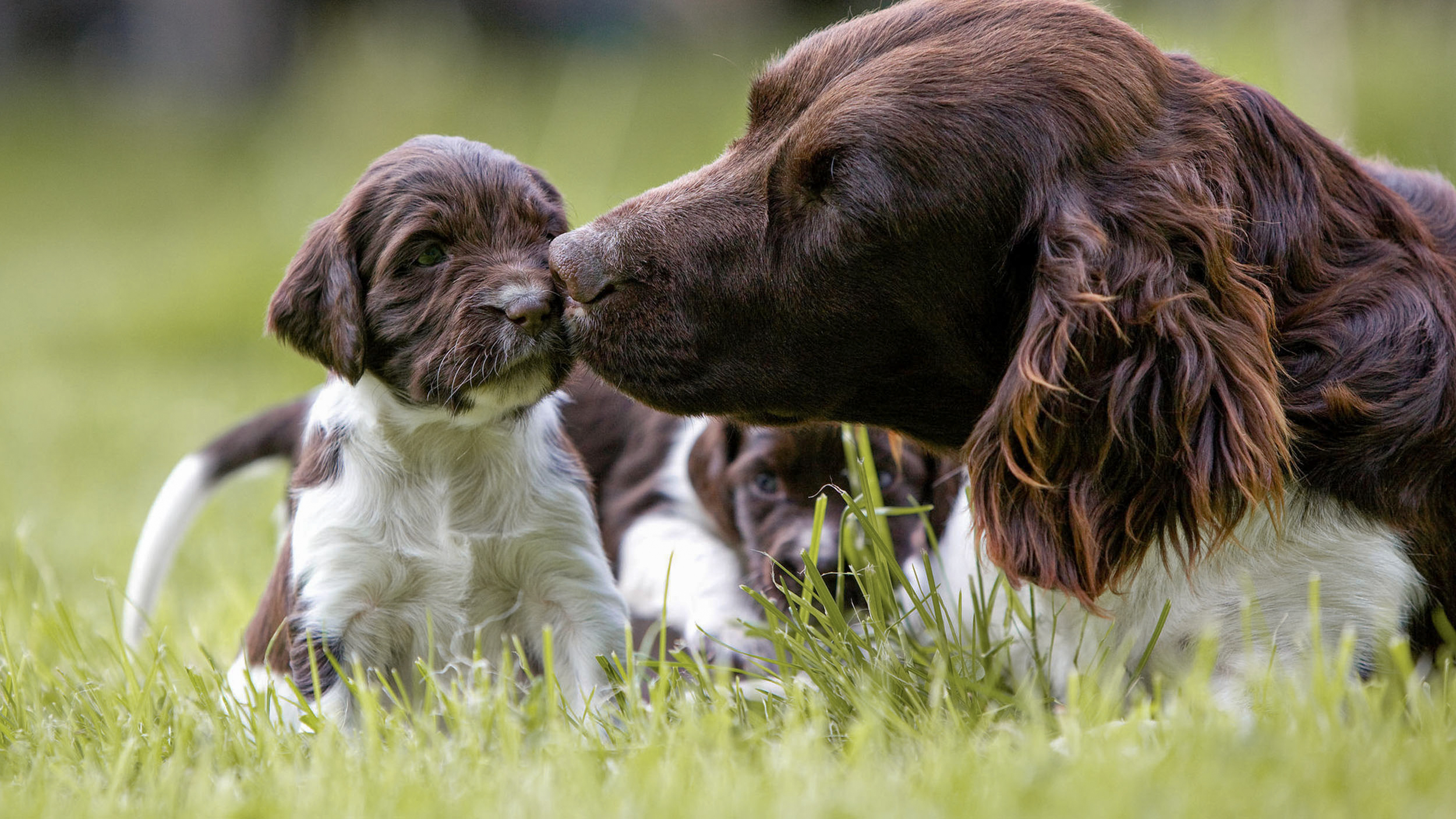Should I adopt a dog or buy a puppy?

While a puppy can be an exciting as well as challenging addition to your home, adopting an adult dog can also be an extremely rewarding experience, and for many people it is a more suitable option that they might not have previously considered.
Adopting an adult dog
Adopting an adult dog doesn't have quite the same cute factor that a puppy has, but it can prove to be more manageable. A dog that has been given a second chance often has a boundless capacity to love, and will have already bypassed the acute training stage that can be so challenging in puppies.
Pros to adopting an adult dog
- Adult dogs are more likely to already be trained in the basics—although this is not a foregone conclusion and should be confirmed with the rescue center.
- The same goes for potty training, although unlike a puppy an adult dog is likely to have developed much more reliable bladder control.
- In adult dogs, their personality is already evident so you can get a better idea of how they will fit with your family.
- Size is already defined in an adult dog.
- Adult dogs are likely to have lower energy levels than puppies. That's not the same as saying they have low energy levels, just that the hyperactive energy of a puppy may have subsided—although this can be breed dependent.
Challenges of adopting an adult dog
- If an adult dog is in need of a new home it may mean they have had a traumatic past, which could lead to challenging behaviors.
- Bad habits can be ingrained and difficult to break.
- If they have not been house trained it can be very difficult to do at an older age.
- It can be very traumatic to introduce new things they aren't used to such as children, cats or even the vacuum cleaner.
- Age can be accompanied by health problems, especially if they haven't been looked after properly, and these can be expensive to manage. For example: obesity, diabetes, vision or hearing loss and dental problems.
- Adult dogs can be harder to introduce to existing dogs in your home than puppies.
Before bringing an adult dog home
- Ask the age of the dog
- Find out what kind of life they have had
- Ask what their personality is like
- Ask if they are calm around other dogs
- Ask if they are happy around children
- Ask if there is anything in particular that makes them anxious, scared or aggressive
- Ask if the dog has any health or dental conditions, if it is up to date with its vaccines, and if there is anything in its medical background you should be aware of.
- See if you can spend time with the dog before adopting him/her
- See if you can take them out for a few walks on and off the leash
- See if you can take them in the car to see how they react
By asking these questions you will better understand your dog and its background, allowing you to support it in its needs and provide a happy and safe environment for it to live in, as well as better preparing yourself for its requirements.

Choosing a puppy
When you choose to get a puppy there are a number of places you can go to get them. For example, you can consider whether to rescue or to go to a breeder for a pedigree dog, however if you do buy from a private seller make sure you do your research first to ensure they are a registered and responsible breeder. You can find them through your local veterinary surgery or by contacting The Kennel Club. It is best to avoid getting puppies from pet shops.
Pros to choosing a puppy
- If you choose a pedigree puppy you are more likely to be able to predict its size and physical attributes when it grows up.
- You can get a more comprehensive idea of the puppy's physical and emotional background than in the case of an adult rescue dog.
- You can get a full medical history of the puppy, especially if you go to a breeder.
- The best time to start training is when your dog is young; so getting a puppy means you can take full responsibility for teaching and training them as you like without the need to correct old habits.
- Training a puppy can be a big part of the bonding process.
- The probability is that you will have many happy years with your dog.
Challenges of choosing a puppy
- Puppies are adorable, but they're also destructive and exhausting. Do not underestimate the time and commitment a puppy needs and the amount of work training can take. If you put in the hard work at the beginning it will make for a happier and easier dog in the long term.
- Young puppies learn from every experience, which can be a very good thing but it also means you need to pay constant attention. If you work full time or are likely to leave your puppy at home alone for long periods, it might not be the best decision for you.
- Puppies can be great with children, but they also need consistency. It's important children understand the puppy is not a toy and to treat it with respect so it does not develop bad habits.
Before purchasing a puppy
- Check the living conditions of the litter.
- Find out if they have started to explore outside yet.
- Ask about the puppy's parentage and see it with the mother. Puppies should not be separated from their mothers before eight weeks of age.
- Check their medical background, whether they have had their vaccinations and been microchipped (and ask for the official pet passport with vaccination and microchip certificate)
- Find out if they have had any flea or worming medication to date.
- Ask what measures have been taken to socialize the puppy.
- See if the breeder is paying careful attention to you; a responsible breeder will want their puppies to go to a good home.
Whether you get an adult dog or a puppy will change your experience of owning a dog, and each has its pros and cons, but whichever choice you make, preparing properly and doing thorough research will set you up for a rewarding experience and a happy addition to your home.
Related Articles
Like & share this page